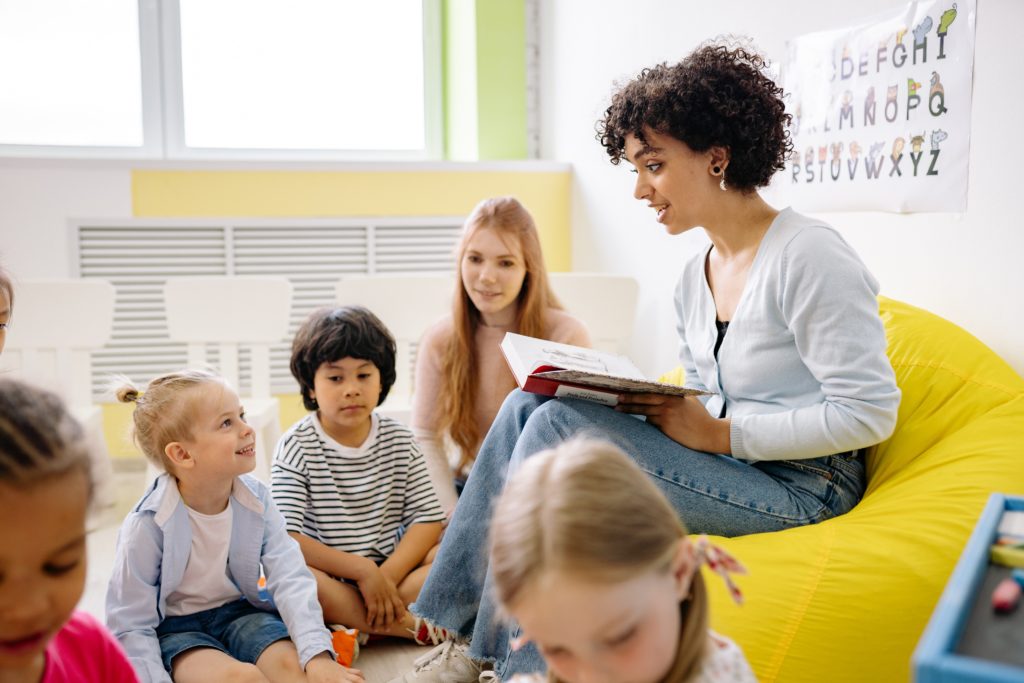 The Montessori method is a style of education that is based on independence, freedom within limits, and respect for a child’s natural and unique development. It was developed by Italian physician and educator Maria Montessori in the year 1907, and her philosophy is centered around the fact that every child has immense potential and that they all have the innate desire to learn.
The Montessori method is a style of education that is based on independence, freedom within limits, and respect for a child’s natural and unique development. It was developed by Italian physician and educator Maria Montessori in the year 1907, and her philosophy is centered around the fact that every child has immense potential and that they all have the innate desire to learn.
If you are new to the world of Montessori education, then there is plenty to discover. At first, it can be overwhelming to look at education through a new lens, but many parents find it interesting and eye-opening as they take the journey with their children.
This article will detail the things that new parents enjoy learning about Montessori education, and we’ll start out with the seven principles of the Montessori method.
The Seven Principles
Maria Montessori’s philosophy focused on seven principles, and they are as follows:
1. Free Choice
When children have control over their lives, they learn better. In general, they are also happier. A Montessori program defines the limits to which this freedom can be exercised, but children are encouraged to make their own decisions. They can choose what they want to work on, how long to work on it, who they want to work with, etc.
2. Order
Environment is key to the way a child learns and develops. Montessori classrooms are organized in more ways than one—they have an organized layout, and the progression of the available materials throughout the year is organized as well.
3. Interest
Children learn best when they are actually interested in what they’re learning about. They remember things better when they care about the subject matter rather than simply learn with the goal of doing well on an assessment.
4. Learning from Peers
It’s the natural instinct of children to learn through imitation, and this can be used to their advantage in a classroom populated with mixed-age kids. The younger kids can learn from the older ones either by mirroring or asking for help. The older children can hone their mentoring skills by helping their younger classmates.
5. Movement
Education that involves movement helps children learn. Children are not meant to be stagnant beings, and their cognition is closely entwined with movement.
6. Context
Children in a Montessori program learn by doing; their learning hinges on the context of actions and objects rather than the instructions of teachers and books.
7. Teacher Guidance
Montessori teachers understand how to set clear boundaries yet allow a child to be free within those boundaries. They respond to children’s needs and maintain high expectations for their classroom, finding a middle ground between an authoritarian attitude and a permissive approach.
What Else Can Parents Learn?
Many parents are glad to know that the goal of Montessori education is to help children develop their potential as engaged, competent, responsible, and respectful citizens. It’s commonly thought that school helps to prepare kids for the “real world,” but Montessori puts in the work to create a future full of well-rounded and balanced people who understand that learning is a lifelong activity.
Many parents don’t want their child to be treated like a number or a seat in the classroom, and such a thing never occurs in a Montessori program. Instead, each child is valued as a unique individual and taught in a way that respects that. All learning styles are accommodated, and students are free to learn at their own pace, guided through the curriculum with gentle help from teachers.
But guidance from teachers is gentle for a reason: Montessori education focuses heavily on self-regulation. From an early age, Montessori students develop order, coordination, concentration, and independence—they make their own choices and are more confident learners because of it.
But just because independence is valued doesn’t mean that community isn’t. The classroom is a tight-knit place where students feel supported and know that they can reach out to either older students or a teacher for help whenever they need it.
Because they can rest easy knowing that they are cared for within this community, they have the confidence to actively seek knowledge and pursue their own answers. They are also confident enough to look critically at their own work and recognize when it needs to be corrected, then learn from their mistakes.
Montessori Education
Children who participate in a Montessori program are given the freedom and support to ask questions and make connections. Because of this, they grow into their confidence and become enthusiastic and self-directed learners, which is something that parents love to witness.
The great thing about Montessori is that parents are always learning something new, usually something their child taught them—and if that’s not a symbol of success for Montessori education, we’re not sure what is.





















